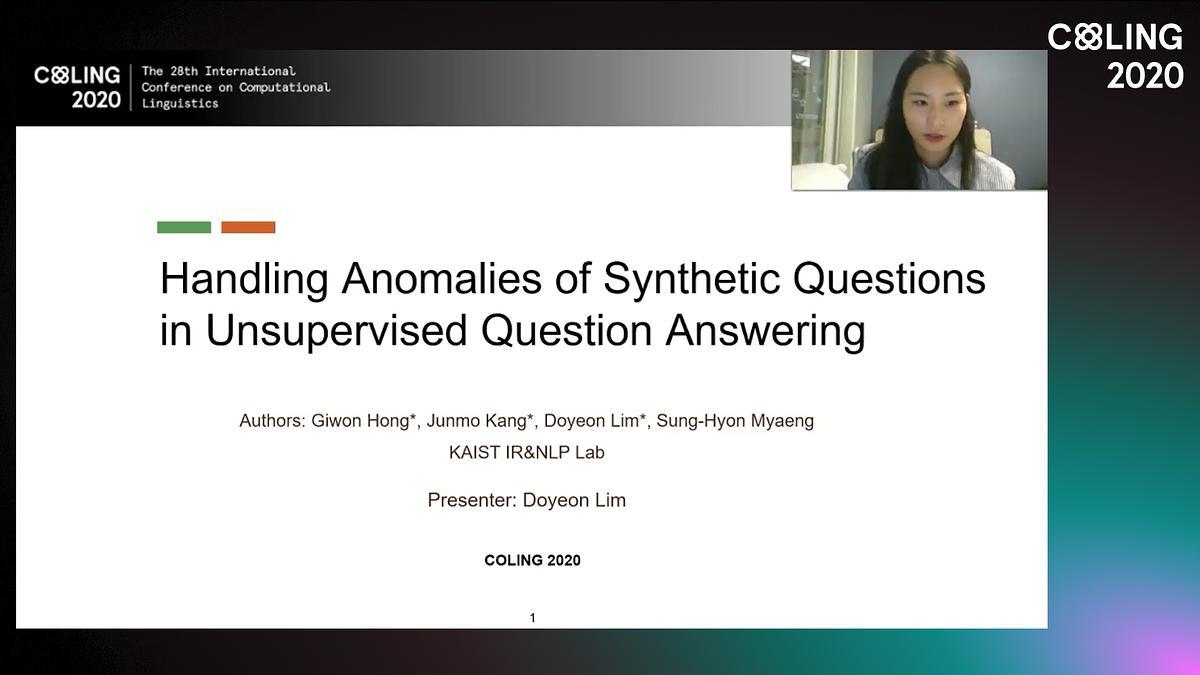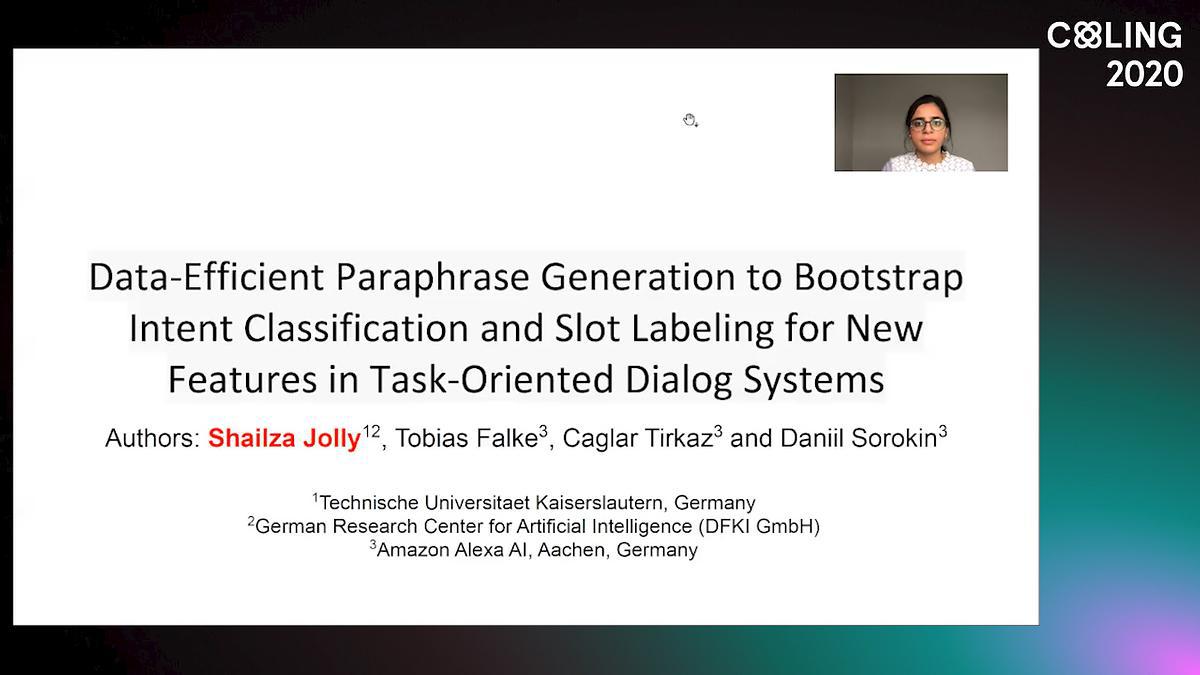The video of this talk cannot be embedded. You can watch it here:
https://underline.io/lecture/6330-handling-anomalies-of-synthetic-questions-in-unsupervised-question-answering
(Link will open in new window)
This is an embedded video. Talk and the respective paper are published at
COLING 2020 virtual conference.
If you are one of the authors of the paper and want to manage your upload, see the question "My papertalk has been externally embedded..." in the
FAQ section.










































